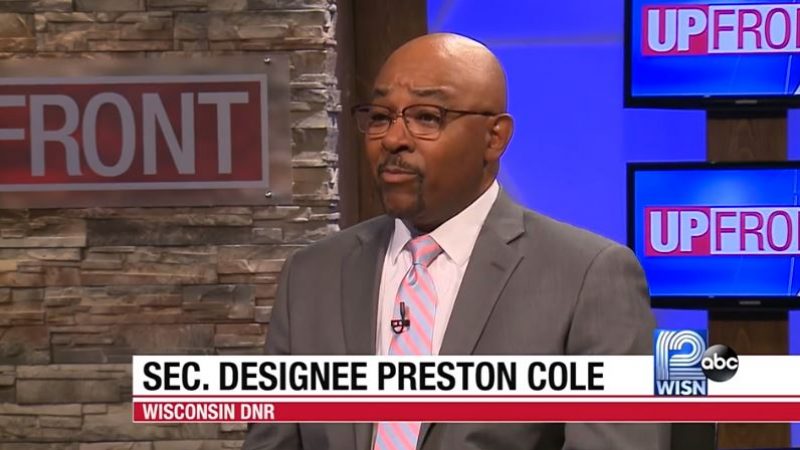DNR Secretary Preston Cole said the agency is “doubling down” on efforts to improve the quality of drinking water all over the state.
Water quality is the problem that “keeps me up at night,” Cole told “UpFront,” produced in partnership with WisPolitics.com.
Cole said two new scientists — positions added in the 2019-2021 state budget — will help the department work on improving water quality. Democratic Gov. Tony Evers had sought five additional DNR science positions. Republican lawmakers approved two.
“This is the down payment that the governor is ensuring the people of the state of Wisconsin,” Cole said.
>> WisPolitics is now on the State Affairs network. Get custom keyword notifications, bill tracking and all WisPolitics content. Get the app or access via desktop.
“He made water a central issue of his campaign, and here today, we are going to be able to work with those additional staff to solve some of the most harmful crises around drinking water,” he said.
The additional scientists will work on PFAS (per- and polyfluoroalkyl substances) modeling “to tell us where it is, and where it isn’t,” Cole said.
Cole, who has called climate change a “real deal,” also said the agency will address it, and will once again acknowledge it in a planned website revamp.
Under the Walker administration, controversy erupted at the end of 2016 when the DNR removed or revised references on its website to climate change, rising temperatures and the relation to human activities.
Cole said the DNR will talk about the “implications of climate change and where it stems from.”
In an “UpFront” web extra, Cole said he has heard a variety of opinions from lawmakers about chronic wasting disease and what the state should be doing about it. He said he is doing the “requisite research” on CWD.
Cole said the DNR’s approach will include talking to surrounding states about what they are doing about the deer disease and trying to give hunters a faster test to see if CWD is present.
Also on the program, a family farm advocate said it’s time for an “all-hands-on-deck” approach to the high numbers of farmers in crisis.
Margaret Krome, policy director for the Michael Fields Agricultural Institute in Walworth County, said government at all levels can help farmers stay on their land.
Krome said at the federal level, the USDA’s credit arm could direct local offices to take specific steps to “help farms weather this very tough, long storm.”
Those steps could include refinancing, restructuring debt, or steering farmers toward diversification or conservation programs, she said.
Krome said even individuals can help.
“One thing anybody can do is, if you know a farmer, check,” she said. “Ask a farmer. Make sure you don’t leave a farmer feeling isolated in a really tough time.”
See more from the show: https://www.wisn.com/upfront



